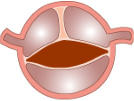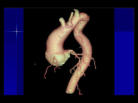


Disclaimer Privacy Policy
Copyright (c) 2021 Bicuspid Aortic Foundation, All Rights Reserved


Creating a Climate of Hope, an Atmosphere of Caring, and Information for All

BAV in the Spotlight
Focusing on
Bicuspid Aortic Valve

B - Blood Pressure Management
Keeping blood pressure lower than normal is part of the life long
treatment for those with fragile aortic tissue.
The traditional use of beta blockers was the first recommended
treatment for those with aortic disease.
However, the addition of ACE inhibitors and ARBs, followed by
calcium channel blockers, and sometimes diuretics, have shown
markedly improved results.
Heavy weight lifting causes blood pressure to rise too high, placing
stress on the aortic wall that may result in aortic dissection or full
rupture.
Individuals should discuss lifting and other exercise guidelines with
their physicians.
If you have thorcic aortic disease, you can:
•
Obtain a home blood pressure monitor. Fully automatic
devices with an arm cuff and digital read out are easy to
use.
•
Take your blood pressure daily, and keep a log of your
blood pressure and pulse.
•
Work with your doctor to find the medication combination
that is best for you.

TAD in the Spotlight
Focusing on Thoracic
Aortic Disease


- Aorta
- BAV and Other Heart Valves
- Blood Pressure
- Exercise/Weight Lifting
- Featured Papers
- Guidelines
- Familial TAAD
- History
- Honoring Dr. M.E. Abbott
- Pictures (graphic content)
- Pictures Valvular Strand, Aneurysm (graphic)
- Prosthetic Heart Valves
- Scientific Awards
- Spotlight on Research - Coming Soon
- Video (graphic content)





























